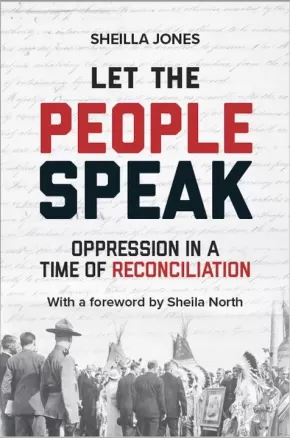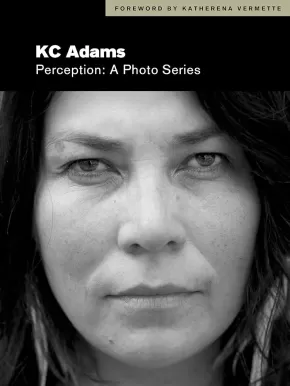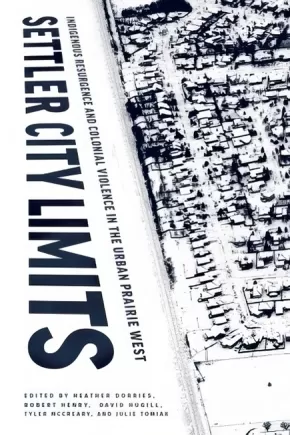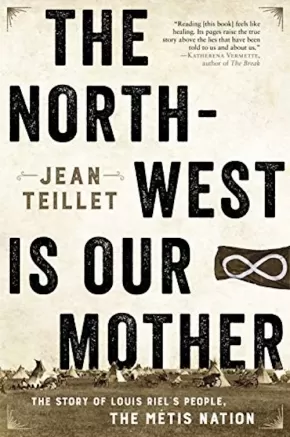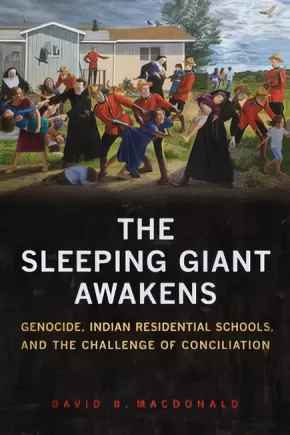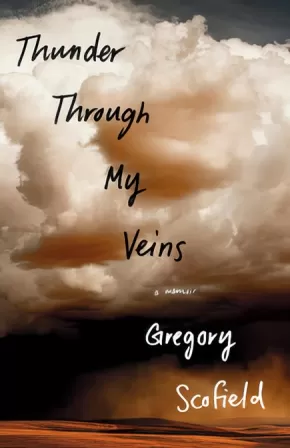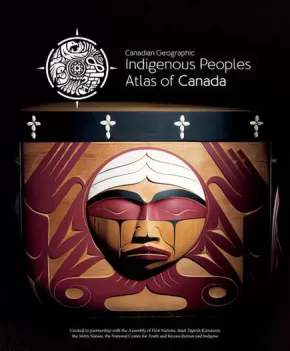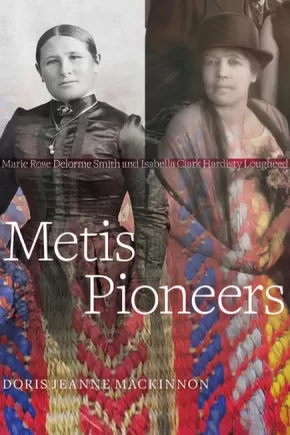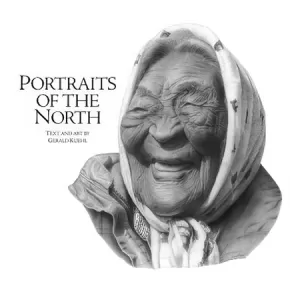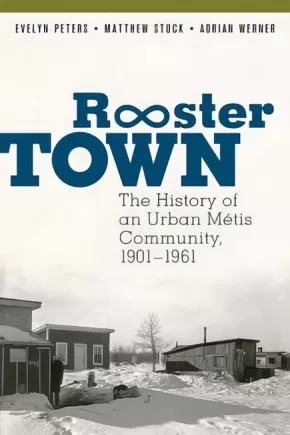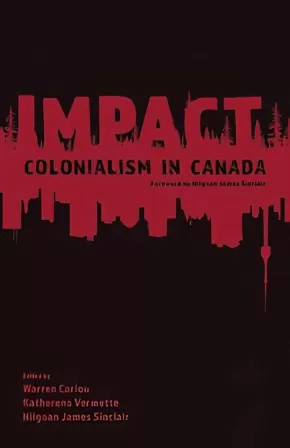Métis
Synopsis:
Indigenous Relations: Your Guide to Working Effectively with First Nations, Métis, and Inuit.
A timely sequel to the bestselling 21 Things You May Not Know About the Indian Act - and an invaluable guide for anyone seeking to work more effectively with Indigenous Peoples.
We are all treaty people. But what are the everyday impacts of treaties, and how can we effectively work toward reconciliation if we're worried our words and actions will unintentionally cause harm?
Hereditary chief and leading Indigenous relations trainer Bob Joseph is your guide to respecting cultural differences and improving your personal relationships and business interactions with Indigenous Peoples. Practical and inclusive, Indigenous Relations interprets the difference between hereditary and elected leadership, and why it matters; explains the intricacies of Aboriginal Rights and Title, and the treaty process; and demonstrates the lasting impact of the Indian Act, including the barriers that Indigenous communities face and the truth behind common myths and stereotypes perpetuated since Confederation.
Indigenous Relations equips you with the necessary knowledge to respectfully avoid missteps in your work and daily life, and offers an eight-part process to help business and government work more effectively with Indigenous Peoples - benefitting workplace culture as well as the bottom line. Indigenous Relations is an invaluable tool for anyone who wants to improve their cultural competency and undo the legacy of the Indian Act.
Educator Information
Recommended in the Canadian Indigenous Books for Schools 2020/2021 resource list for grades 11 and 12 in these areas: Social Studies, Law, English Language Arts, and Social Justice.
Additional Information
200 pages | 8.00" x 5.00"
Synopsis:
Gabriel Dumont Institute Press is honoured to publish Cecile Blanke’s Lac Pelletier: My Métis Home. A prominent Métis Elder living in Swift Current, Saskatchewan, but with deep roots in nearby Lac Pelletier, Cecile has been a tireless presence on the Métis and larger cultural scene in southwest Saskatchewan for many years. The history of the southwest Saskatchewan Métis is not widely known, and this book contributes significantly to our knowledge of this community. With her vivid memories of Lac Pelletier’s local families and traditions, we are left with an enduring portrait of a caring Métis community which maintained close family ties and lived in harmony with Lac Pelletier’s flora and fauna. Cecile also chronicles the racism that the local Métis often faced and discussed how colonization made her and others question their Métis identity. With time and perspective, she overcame this self-hatred and became proud of her Métis heritage, becoming its biggest promoter in her region of Saskatchewan.
Educator Information
Recommended by Gabriel Dumont Institute for these grade levels: Secondary/Post-Secondary/Adult
Synopsis:
Over the past fifty years, Canada's Indigenous Affairs department (now two departments with more than 30 federal co-delivery partners) has mushroomed into a "super-province" delivering birth-to-death programs and services to First Nations, Inuit and Métis people. This vast entity has jurisdictional reach over 90-percent of Canada's landscape, and an annual budget of some $20-billion. Yet Indigenous people have no means to hold this "super-province" accountable to them. Not a single person in this entity has been elected by Indigenous people to represent their interests. Not one. When it comes to federal Indigenous policy, ordinary Indigenous people in Canada are voiceless and powerless.
In Let the People Speak: Oppression in a Time of Reconciliation, author and journalist Sheilla Jones raises an important question: are the well-documented social inequities in Indigenous communities--high levels of poverty, suicide, incarceration, children in care, family violence--the symptoms of this long-standing, institutionalized powerlessness? If so, the solution lies in empowerment. And the means of empowerment is already embedded in the historic treaties. Jones argues that there can be meaningful reconciliation only when ordinary Indigenous Canadians are finally empowered to make their voices heard, and ordinary non-Indigenous Canadians can join with them to advance a shared future.
Educator Information
Includes a foreword from Sheila North. Sheila is from the Bunibonibee Cree Nation and is the former Grand Chief of the Manitoba Keewatinowi Okimakanak (MKO), and former Chief Communications Officer for the Assembly of Manitoba Chiefs. She is a former Gemini-nominated CBC journalist, former CTV journalist and documentarist.
Additional Information
256 pages | 6.00" x 9.00"
Synopsis:
At a time when the Métis are becoming increasingly visible on Canada’s political scene, Métis Politics and Governance in Canada offers a novel and practical guide to understand who the Métis are, how they govern themselves, and the challenges they face on the path to self-government.
The Métis have always been a political people. With the culmination of the North-West Resistance in 1885 and the hanging of their spiritual and political leader, Louis Riel, the Métis continued to take political action to give life to Riel’s vision of a self-governing Métis Nation in Canada.
Drawing on interviews with elders, leaders, and community members, Kelly Saunders and Janique Dubois reveal how the Métis have adapted their governance structures in accordance with their way of life as a distinct, rights-bearing Indigenous people. They look to the Métis language – Michif – to identify Métis principles of governance that emerged during the fur trade and that continue to shape Métis governance structures. Both then and now, the Métis continue to negotiate their place alongside federal and provincial partners in Confederation.
As Canada engages in nation-to-nation relationships to advance reconciliation, this book provides timely insight into the Métis Nation’s ongoing struggle to remain a free and self-governing Indigenous people.
This book will appeal to anyone interested in the Métis Nation and Indigenous self-government, including scholars in Political Science, Indigenous Studies, and Public Policy as well as government officials and the general public.
Reviews
"Métis Politics and Governance in Canada explores an aspect of Métis existence in Canada that has been neglected for far too long: the workings of contemporary Métis political organizations at the provincial and national levels. It is a must-read for anyone interested in Métis political organizing, leadership, representation, and the values inherent in Métis political activity." - Joe Sawchuk, co-author of From New Peoples to New Nations: Aspects of Métis History and Identity from the Eighteenth to the Twenty-First Centuries
"Unlike other academic works that simply look at the Métis Nation’s self-government as frozen in time and tied to 1869/70 or 1885, this book compellingly tells the “rest of the story” up to the present day. Uniquely, it also looks to the Métis Nation’s own language – Michif – to identify and understand key principles of Métis governance that continue to today. This book is essential reading for those who want to better understand the current state of Métis Nation self-government in Canada." - Jason Madden, co-managing partner of Pape Salter Teillet LLP
Additional Information
220 pages | 5.50" x 8.50"
Synopsis:
Social action art in book form, Perception: A Photo Series encourages readers to look and then look again.
Tired of reading negative and disparaging remarks directed at Indigenous people of Winnipeg in the press and social media, artist KC Adams created a photo series that presented another perspective. Called “Perception Photo Series,” it confronted common stereotypes of First Nation, Inuit and Métis people to illustrate a more contemporary truthful story.
First appearing on billboards, in storefronts, in bus shelters, and projected onto Winnipeg’s downtown buildings, Adam’s stunning photographs now appear in her new book, Perception: A Photo Series. Meant to challenge the culture of apathy and willful ignorance about Indigenous issues, Adams hopes to unite readers in the fight against prejudice of all kinds.
Reviews
"Indeed, the potential lasting impact of this collection can’t be underestimated; this is socially engaged art at its best." — Kirkus Reviews, March 2019
"KC Adams' Perception series challenges us to bridge thought and reality; emerging on the other side better having challenged ourselves to see Indigenous peoples for what they really are. We are grandparents, parents, children - and everything in between. As Adams shows through this incredible exhibition of faces and feelings, we are beautiful, whole, and complex peoples irreducible to stereotypes and slander." — Romeo Saganash (Cree, father, activist, and dreamer)
"KC Adams's Perception series absolutely captured the most devastating perceptions from the colonial mind, and the accompanying lack of knowledge about the truth of Canada's historical relationship to Indigenous Peoples. Succinctly and beautifully, KC transformed that narrative in this series. It is a prolific piece which will always be a source of inspiration for truth and reconciliation. It is unforgettable. Kichi miigwetch KC Adams!." — Tina Keeper, March 2019
"We hear the saying, “A picture can say a thousand words” quite often, but sometimes we don’t take the time to actually look at what we are seeing and what it is saying. Sometimes photographs are taken for fun, with no real meaning behind them. But there are times when a photograph is taken for a purpose, taken to deliver a message. KC Adams, with Perception, is doing just that. She is not only delivering a message, she is also making a statement in order to break down the racial prejudices and stereotypes towards the indigenous community in Canada.... From looking at the first picture that shows their reaction to what people think of them to looking at their second picture that shows their look of pure happiness coupled with their name, their tribes, and the words they would use to describe themselves is what is causing people to think twice, think differently, and spark conversation." — Leslie Trotter, NetGalley, March 2019
"I admire what KC Adams did when she kept hearing disparaging remarks and slurs against the Native peoples of Canada. As an indigenous person herself, she too, had been subjected to mistreatment and prejudice just be being someone who looks different. She was determined to find a way to get people's perceptions to change. The Native/indigenous people and their cultures were here to stay and non-Native people had to come to terms with and accept that. Adams choose to use her skill as a photographer as a catalyst to address the racism and prejudice head on.... She took a series of two photographs of the same person; one as she said a racist remark, the other as she said something positive about the person. She then put up these pictures as posters around municipal areas. The first picture was headlined with the slur said while filming it, the bottom said "Think again". The second picture (taken when she invoked a positive response in them) told who they were and some things about them. This photography series (now captured in her book Perceptions) helped people recognize their own reactions to Native peoples and realize that they were unfair and untrue.... I love when art is not only creative, but an agent for social change! Kudos, Ms. Adams! Well done!" — Kathy Fuchs, NetGalley, February 2019
"Perception is an impressive collection...an inside look into a living legend’s photography practice (I say this in no uncertain terms) and, more importantly, as Adams intended, a reminder to look past the hurt in search of a love that can bring us all home." — Lindsay Nixon, Editor-at-Large Canadian Art, author nîtisânak, Metonymy Press, March 2019
"This is an amazing portrayal of the indigenous community. The emotions displayed by each individual are clearly defined. I highly recommend this resource be placed in all libraries and used to dispel racism and discriminatory ideas." — Shelley Stefanowich, NetGalley, April 2019
Educator & Series Information
For Grades 9-12 / Young Adults
Foreword by Katherena Vermette; Critical essay by Cathy Mattes
Caution: Mature subject matter/language in some instances as this book is dealing with stereotypes and prejudice (radicalized language and derogatory terminology).
Recommended in the Canadian Indigenous Books for Schools 2019-2020 resource list for grades 10 to 12 for Art Education, Social Studies, Social Justice, and English Language Arts.
This book is part of The Debwe Series, a collection of exceptional Indigenous writings from across Canada.
Additional Information
120 pages | 6.75" x 9.00" | Hardcover | Foreward from Katherena Vermette
Synopsis:
While cities like Winnipeg, Minneapolis, Saskatoon, Rapid City, Edmonton, Missoula, Regina, and Tulsa are places where Indigenous marginalization has been most acute, they have also long been sites of Indigenous placemaking and resistance to settler colonialism.
Although such cities have been denigrated as “ordinary” or banal in the broader urban literature, they are exceptional sites to study Indigenous resurgence. The urban centres of the continental plains have featured Indigenous housing and food co-operatives, social service agencies, and schools. The American Indian Movement initially developed in Minneapolis in 1968, and Idle No More emerged in Saskatoon in 2013.
The editors and authors of Settler City Limits, both Indigenous and settler, address urban struggles involving Anishinaabek, Cree, Creek, Dakota, Flathead, Lakota, and Métis peoples. Collectively, these studies showcase how Indigenous people in the city resist ongoing processes of colonial dispossession and create spaces for themselves and their families.
Working at intersections of Indigenous studies, settler colonial studies, urban studies, geography, and sociology, this book examines how the historical and political conditions of settler colonialism have shaped urban development in the Canadian Prairies and American Plains. Settler City Limits frames cities as Indigenous spaces and places, both in terms of the historical geographies of the regions in which they are embedded, and with respect to ongoing struggles for land, life, and self-determination.
Contributors: Chris Andersen, Nicholas Brown, Elizabeth Comack, Heather Dorries, Nick Estes, Adam Gaudry, Robert Henry, David Hugill, Sharmeen Khan, Corey Laberge, Brenda Macdougall, Tyler McCreary, Lindsey Claire Smith, Michelle Stewart, Zoe Todd, Julie Tomiak
Reviews
“Settler City Limits breaks ground, shattering the powerful authoritative structures of racism that have dichotomized rural and urban space, and Indigenous peoples’ relation to these as a central force sustaining and fortifying settler colonialism.” – Heather A. Howard-Bobiwash, Associate Professor of Anthropology, Michigan State University, and Affiliated Faculty Centre for Indigenous Studies, University of Toronto
Educator Information
Table of Contents
Introduction
Part 1 Land and Politics
Part 2 Contestation, Resistance, Solidarities
Part 3 Policing and Social Control
Part 4 Life and Death
Additional Information
368 pages | 6.00" x 9.00"
Authenticity Note: Contains contributions from both Indigenous peoples and settlers.
Synopsis:
There is a missing chapter in the narrative of Canada’s Indigenous peoples—the story of the Métis Nation, a new Indigenous people descended from both First Nations and Europeans.
Their story begins in the last decade of the eighteenth century in the Canadian North-West. Within twenty years the Métis proclaimed themselves a nation and won their first battle. Within forty years they were famous throughout North America for their military skills, their nomadic life and their buffalo hunts.
The Métis Nation didn’t just drift slowly into the Canadian consciousness in the early 1800s; it burst onto the scene fully formed. The Métis were flamboyant, defiant, loud and definitely not noble savages. They were nomads with a very different way of being in the world—always on the move, very much in the moment, passionate and fierce. They were romantics and visionaries with big dreams. They battled continuously—for recognition, for their lands and for their rights and freedoms. In 1870 and 1885, led by the iconic Louis Riel, they fought back when Canada took their lands. These acts of resistance became defining moments in Canadian history, with implications that reverberate to this day: Western alienation, Indigenous rights and the French/English divide.
After being defeated at the Battle of Batoche in 1885, the Métis lived in hiding for twenty years. But early in the twentieth century, they determined to hide no more and began a long, successful fight back into the Canadian consciousness. The Métis people are now recognized in Canada as a distinct Indigenous nation. Written by the great-grandniece of Louis Riel, this popular and engaging history of “forgotten people” tells the story up to the present era of national reconciliation with Indigenous peoples.
Additional Information
576 pages | 6.00" x 9.00"
Synopsis:
Confronting the truths of Canada’s Indian Residential School system has been likened to waking a sleeping giant. In this book, David B. MacDonald uses genocide as an analytical tool to better understand Canada’s past and present relationships between settlers and Indigenous peoples. Starting with a discussion of how genocide is defined in domestic and international law, the book applies the concept to the forced transfer of Indigenous children to residential schools and the "Sixties Scoop," in which Indigenous children were taken from their communities and placed in foster homes or adopted.
Based on archival research and extensive interviews with residential school survivors, officials at the Truth and Reconciliation Commission of Canada, and others, The Sleeping Giant Awakens offers a unique and timely perspective on the prospects for conciliation after genocide, exploring how moving forward together is difficult in a context where many settlers know little of the residential schools and the ongoing legacies of colonization, and need to have a better conception of Indigenous rights. It offers a detailed analysis of how the TRC approached genocide in its deliberations and in the Final Report.
Crucially, MacDonald engages critics who argue that the term genocide impedes understanding of the IRS system and imperils prospects for conciliation. By contrast, this book sees genocide recognition as an important basis for meaningful discussions of how to engage Indigenous-settler relations in respectful and proactive ways.
Additional Information
224 pages | 6.00" x 9.00"
Synopsis:
Gregory Scofield's Thunder Through My Veins is the heartbreakingly beautiful memoir of one man's journey toward self-discovery, acceptance, and the healing power of art.
Few people can justify a memoir at the age of thirty-three. Gregory Scofield is the exception, a young man who has inhabited several lives in the time most of us can manage only one. Born into a Métis family of Cree, Scottish, English and French descent but never told of his heritage, Gregory knew he was different. His father disappeared after he was born, and at five he was separated from his mother and sent to live with strangers and extended family. There began a childhood marked by constant loss, poverty, violence and self-hatred. Only his love for his sensitive but battered mother and his Aunty Georgina, a neighbor who befriended him, kept him alive.
It wasn't until he set out to search for his roots and began to chronicle his life in evocative, award-winning poetry, that he found himself released from the burdens of the past and able to draw upon the wisdom of those who went before him. Thunder Through My Veins is Gregory's traumatic, tender and hopeful story of his fight to rediscover and accept himself in the face of a heritage with diametrically opposed backgrounds.
Additional Information
256 pages | 5.18" x 8.00"
Synopsis:
Indigenous perspectives much older than the nation itself shared through maps, artwork, history and culture.
The Royal Canadian Geographical Society, in partnership with Canada's national Indigenous organizations, has created a groundbreaking four-volume atlas that shares the experiences, perspectives, and histories of First Nations, Inuit and Métis peoples. It's an ambitious and unprecedented project inspired by the Truth and Reconciliation Commission's Calls to Action. Exploring themes of language, demographics, economy, environment and culture, with in-depth coverage of treaties and residential schools, these are stories of Canada's Indigenous Peoples, told in detailed maps and rich narratives.
This extraordinary project offers Canada a step on the path toward understanding.
The volumes contain more than 48 pages of reference maps, content from more than 50 Indigenous writers; hundreds of historical and contemporary photographs and a glossary of Indigenous terms, timelines, map of Indigenous languages, and frequently asked questions. All packaged together in a beautifully designed protective slipcase.
Educator Information
Recommended for ages 13+.
The Indigenous Peoples Atlas of Canada includes a four volume print atlas, an online atlas, an app, and more!
Additional Information
322 pages | 10.50" x 12.87"
Synopsis:
In Métis Pioneers, Doris Jeanne MacKinnon compares the survival strategies of two Métis women born during the fur trade—one from the French-speaking free trade tradition and one from the English-speaking Hudson’s Bay Company tradition—who settled in southern Alberta as the Canadian West transitioned to a sedentary agricultural and industrial economy. MacKinnon provides rare insight into their lives, demonstrating the contributions Métis women made to the building of the Prairie West. This is a compelling tale of two women’s acts of quiet resistance in the final days of the British Empire.
Reviews
"[These two women's] individual paths provide interesting parallel stories about Métis women who survived and thrived as the Canadian west transitioned from the fur trade to a more sedentary agricultural economy. Marie Rose’s family was French-speaking Métis and a few served as Louis Riel’s soldiers. Isabella was from the English-speaking Métis stock. Both were born in 1861 and both married non-Indigenous men in unions that were influenced, or arranged outright, by their families. Both families had a strong history in the fur trade; Marie Rose’s were free traders and Isabella as part of the Hudson’s Bay Company. Both were community builders who later relied on their influence and circle of acquaintances for support after they became widows and fell on hard times. And the stories of both women showed how the Métis people continued to make significant contributions to the Canadian west even after the fur trade ended, an area of historical study that MacKinnon thinks is rife for discovery...." — Eric Volmers, Calgary Herald
"MacKinnon's book offers readers an in-depth look at the contributions each of the two women made to the growth of Canada's west, but more than that, it is a book about courage, resilience, determination and strength of character. The book was written to tell the truth..." — John Copley, Alberta Native News
"Whether or not the two women were ever in the same room together, their individual paths provide interesting parallel stories about Métis women who survived and thrived as the Canadian west transitioned from the fur trade to a more sedentary agricultural economy…And the stories of both women showed how the Métis people continued to make significant contributions to the Canadian west even after the fur trade ended, an area of historical study that MacKinnon thinks is rife for discovery."— Eric Volmers, Strength and Resilience
"This book deals with the lives of two frontier women - Isabella Lougheed and Marie Rose Smith. They both were Métis but their histories were miles apart. ... The author has found a rich source of history in these two women and offers them in a detailed account of their lives." — Alberta History
Additional Information
584 pages | 6.00" x 9.00"
Synopsis:
Lindsay Nixon's nîtisânak honours blood and chosen kin with equal care. A groundbreaking memoir spanning nations, prairie punk scenes, and queer love stories, it is woven around grief over the loss of their mother. It also explores despair and healing through community and family, and being torn apart by the same. Using cyclical narrative techniques and drawing on their Cree, Saulteaux, and Métis ancestral teachings, this work offers a compelling perspective on the connections that must be broken and the ones that heal.
Awards
- 2019 Indigenous Voices Award short-listed
- 2019 The Dayne Ogilvie Prize for LGBTQ Emerging Writers
Reviews
"A tremendous gift... unlike any other reading experience I've had" - Leanne Betasamosake Simpson
"A triumph of decolonial and non-normative storytelling." -Dayne Ogilvie Prize for LGBTQ2S+ Emerging Writers jury citation
"nitisanak is wildly interesting, thoughtful, and tender, but also utterly uncompromising." -Jessie Loyer, The Capilano Review
Additional Information
200 pages | 5.25" x 8.00" |
Synopsis:
This gorgeous book offers an incomparable glimpse into the experiences and history of more than one hundred First Nations and Métis elders from Canada’s North —“the last generation born on the land.” These stunning graphite pencil portraits are rendered with love, respect, and painstaking detail, along with gripping intimate profiles assembled from oral accounts and anecdotes. Their poignant facial features, lines, and creases, weathered by the harsh outdoors and a lifetime of challenges, are like badges of their remarkable achievements, sustained resolve, inspired patience, and deep-set defiance to the hardships their people have endured for generations. The masterful realism of Kuehl’s work helps uncover the tales of these seasoned individuals—their many triumphs and trials revealing in turn a greater portrait of life in the communities of Northern Canada, a compelling homage, and an enduring historical legacy. The portraits capture images of Cree, Ojibway, Oji-Cree, Dene and Métis peoples.
Additional Information
236 pages | 10.03" x 10.03"
Synopsis:
Melonville. Smokey Hollow. Bannock Town. Fort Tuyau. Little Chicago. Mud Flats. Pumpville. Tintown. La Coulee. These were some of the names given to Métis communities at the edges of urban areas in Manitoba. Rooster Town, which was on the outskirts of southwest Winnipeg, endured from 1901 to 1961.
Those years in Winnipeg were characterized by the twin pressures of depression and inflation, chronic housing shortages, and a spotty social support network. At the city’s edge, Rooster Town grew without city services as rural Métis arrived to participate in the urban economy and build their own houses while keeping Métis culture and community as a central part of their lives.
In other growing settler cities, the Indigenous experience was largely characterized by removal and confinement. But the continuing presence of Métis living and working in the city, and the establishment of Rooster Town itself, made the Winnipeg experience unique.
Rooster Town documents the story of a community rooted in kinship, culture, and historical circumstance, whose residents existed unofficially in the cracks of municipal bureaucracy, while navigating the legacy of settler colonialism and the demands of modernity and urbanization.
"Rooster Town challenges the lingering mainstream belief that Indigenous people and their culture are incompatible with urban life and opens the door to a broader conversation about the insidious nature of racial stereotypes ubiquitous among the broader Canadian polity. — Brenda Macdougall
"Places like Rooster Town are known and talked about within the contemporary Métis world-everybody knows somebody whose parents or grandparents came from these types of invisible and often marginalized communities-but there has been no acknowledgment of their existence within Canadian historical, geographic, sociological, or political scholarship." — Brenda Macdougall
"Very little is written about Indigenous urban histories. They are typically hidden, or erased, from the histories of Prairie cities, and Canadian cities generally. Rooster Town is an authoritative correction to that colonial erasure in the written record." — Ryan Walker
248 pages | 6.00" x 9.00" | 33 b&w tables, 14 maps
Ch.1—Settler Colonialism and the Dispossession of the Manitoba Métis
Ch.2—The Establishment and Consolidation of Rooster Town, 1901-1911
Ch.3—Devising New Economic and Housing Strategies: Rooster Town during the First World War and After, 1916-1926
Ch.4—Persistence and Community: Rooster Town During and After the Great Depression, 1931-1946
Ch.5—Stereotyping, Dissolution, and Dispersal: Rooster Town, 1951-1961
Conclusion
Synopsis:
A collection of fiction, poetry, essays and creative non-fiction, this anthology features works by over 20 Indigenous Canadian writers. The book focuses on the effects of colonialism in Canada from both historical and contemporary perspectives.
"These stories are rich in geographies Indigenous peoples journey through today; on streets, in cities, and into the future. These stories will make you think, cry, and heal." —Niigaanwewidam James Sinclair, Editor
Reviews
"Impact: Colonialism in Canada presents writings that are often challenging, thought-provoking, and at times, gut-wrenching. The collection is a testament to strength and resiliency and the potential for healing, both within the Indigenous and non-Indigenous communities. But, it is not easy reading; it demands considerable insight, open-mindedness, and an understanding of an historical concept (i.e. colonialism), all of which point to the book’s being read and/or studied by students in the upper grades of high school. It’s certainly a work that would be a fine reference in a high school library collection, and teachers would find it to be an excellent supplemental text for the study of Aboriginal writers, as well as Canadian history, particularly as a reflection of the impact of colonialism upon Canada’s Indigenous peoples. Highly Recommended." - Joanne Peters, CM Magazine
Educator Information
Recommended for ages 17+
Additional Information
198 pages | 5.50" x 8.50"





